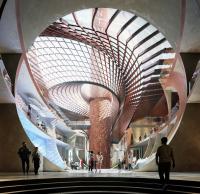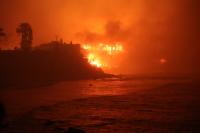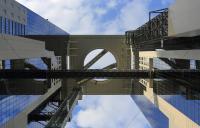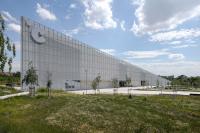Zollverein School
Essen, Germany
As a base for the integrated energy and comfort concept for any project, we research all local site and boundary conditions. This includes the macro- and micro-climates, noise and air quality, soil conditions and available energy sources.
The climate in Essen is very moderate, seldom reaching temperatures below freezing and rarely exceeding 30°C (86°F).
A local coalmine Zeche Zollverein was closed 1986, but the mine shafts and tunnels down to a depth of 1000 m, were still kept accessible for possible future use. As a consequence, DSK, the public owner of the mines, has to permanently pump the ground water from these depths in order to keep the mines from flooding. This water, which is partially contaminated with heavy metals and minerals, has a consistent temperature of 29°C (84°F). It is dumped into the Emsch River at a rate of 600m³/h.
The concept of the new building of the Zollverein School is to use the water as a CO2 free energy source, utilizing it for the conditioning of the building. The water runs through piping in the walls as an active insulation layer and allowed the construction of a thin monolithic concrete wall.
Archiects
SANAA, Tokyo
with Heinrich Böll, Essen









